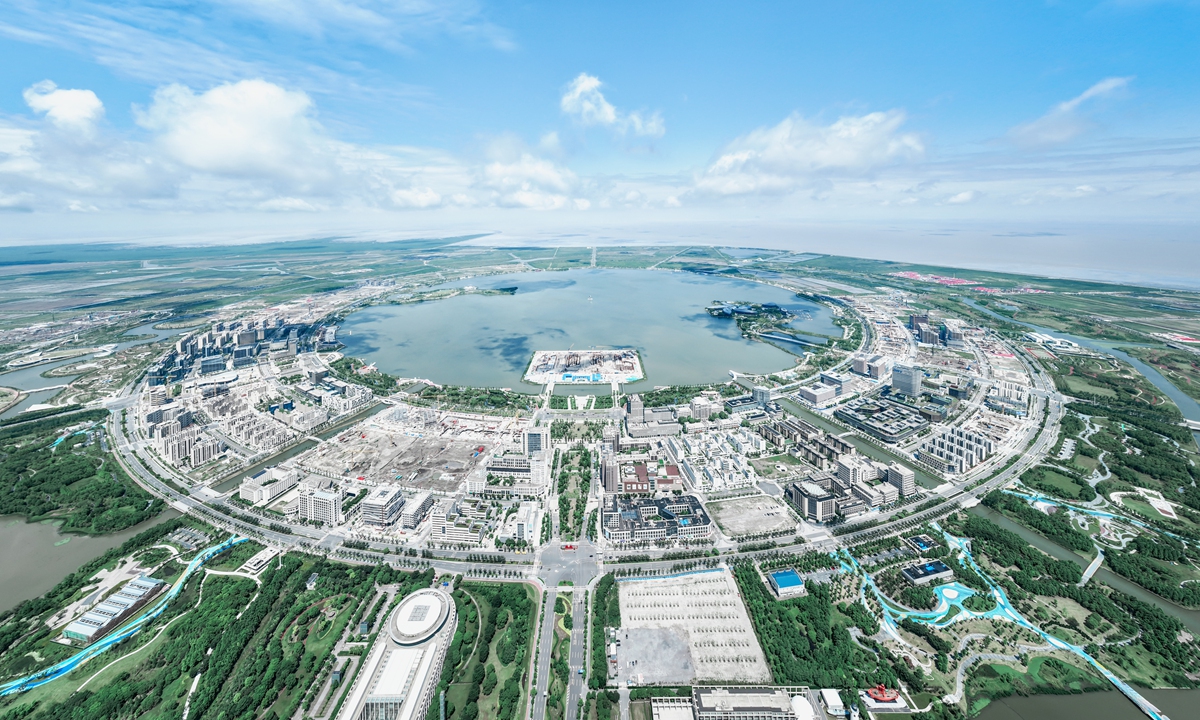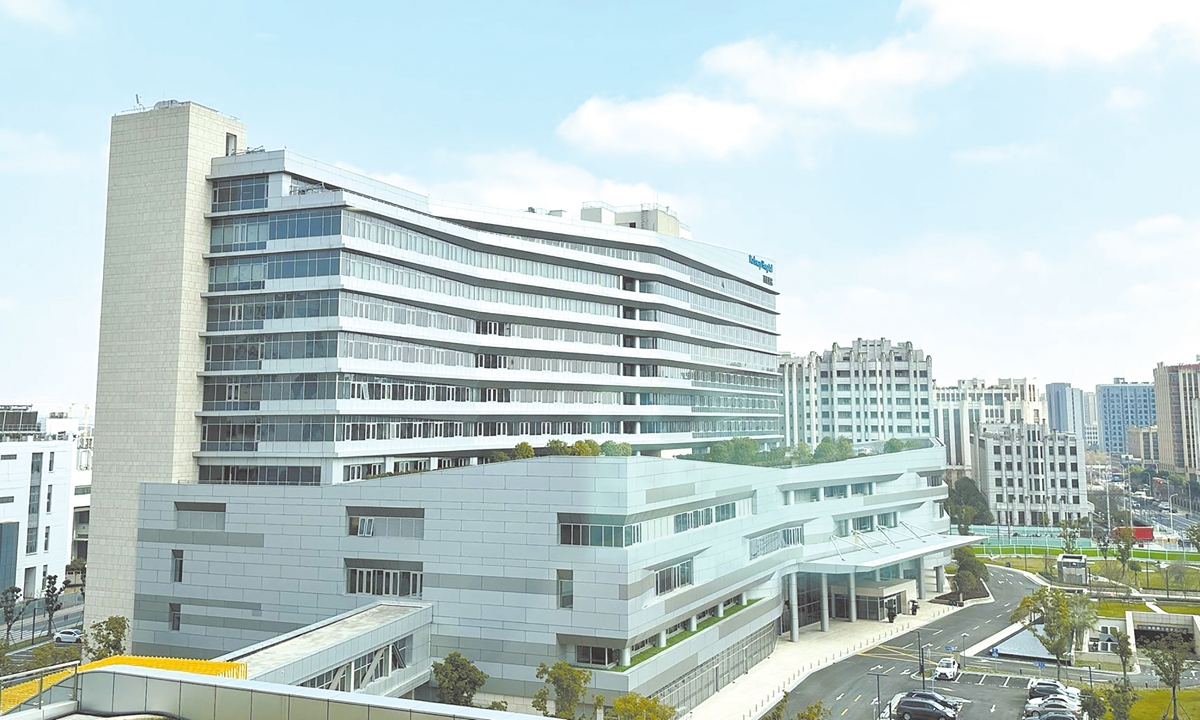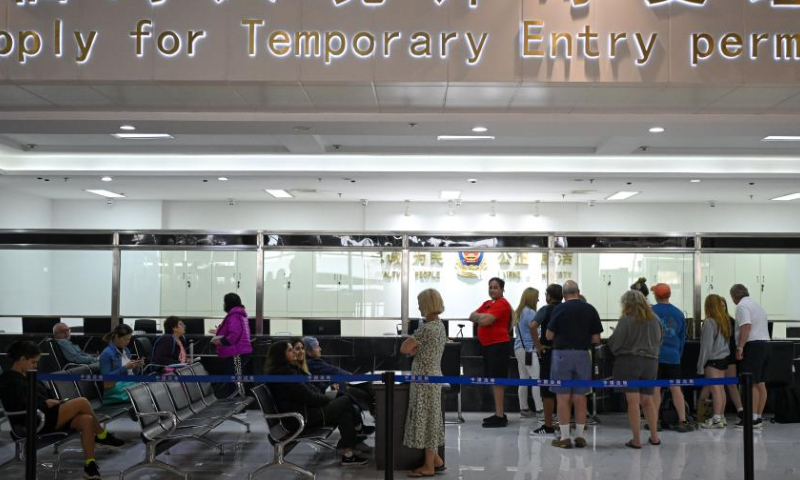Shanghai tries out foreign-funded hospitals, a move to boost healthcare sector opening-up

Lingang New Area of Shanghai Free Trade Zone Photo: VCG
Shanghai released an action plan on Wednesday to encourage the set-up of wholly foreign-owned hospitals in a trial program to promote the opening-up of the healthcare industry. The move is part of China's broader efforts to further open its services sector.
The action plan allows overseas hospitals to operate in Shanghai, and maps out detailed policy guiding the number of pilot projects in the city, eligible investors and operational requirements, according to a notice seen on the municipal government's website.
Per the notice, foreign-invested hospitals are permitted to set up in the China (Shanghai) Pilot Free Trade Zone, the Lingang Special Area, the Hongqiao International Business District and the Oriental Hub International Business Cooperation Zone, and other places selected. The move will enrich Shanghai's medical service offerings and meet the diverse health service needs of Shanghai-based residents.
Raffles Medical Group, a leading integrated private healthcare provider in Asia, currently operates three hospitals in Shanghai, Beijing and Chongqing city. "The new policy is encouraging, and we continue looking for more high-quality projects in China," Kenneth Chung, general manager of Raffles Hospital Shanghai, told the Global Times on Wednesday.
In September 2024, China started to test setting up wholly-owned foreign hospitals in nine cities across the country, including Beijing, Shanghai and Shenzhen. In November, the government released detailed guidelines outlining specific conditions and management measures.
Since then, the push for healthcare opening-up has gained pace. On December 16, Singapore-based Perennial Holdings obtained Medical Institution Practice Licence in Tianjin, and is on track to open its first wholly-owned general hospital in 2025.
"We highly commend China's open-door foreign investment policy on healthcare…this boosts confidence for investors keen on China's healthcare space and drives foreign investment and foreign-local collaboration, given the growth prospects of China," the company told the Global Times, adding it is undertaking similar healthcare projects in Kunming, Xi'an and Guangzhou.
Another foreign healthcare provider, Luye Medical Group, is also planning to build an international medical center and a foreign-funded specialty hospital in Shenzhen, Guangdong Province, Shenzhen city government revealed.
IHH Healthcare, Asia's largest private healthcare group, entered the Chinese market about 20 years ago, and it now cooperates with Parkway Shanghai Hospital, a multi-specialty tertiary facility in Shanghai.
"Over the past two decades, we have witnessed the remarkable vitality and potential of the Chinese market, with Parkway Shanghai making several significant investments locally," said Prem Kumar Nair, CEO of IHH Healthcare.
"As the Chinese government continues to open with new policies on foreign investment in the healthcare sector, we are confident that Parkway Shanghai will experience even greater opportunities for growth and development," Nair said. The company is making a major investment by establishing a new 8,000-square-meter ambulatory care center in downtown Shanghai that will provide comprehensive outpatient and day surgery services when it opens in 2025.
The forward-looking policy is conducive to optimizing business environment, meeting the diverse healthcare needs of residents, and provides valuable references for Chinese medical institutions, Wang Bo, a research fellow at the Research Center of National Drug Policy and Ecosystem, told the Global Times on Wednesday.
"Given China's large population base, an ever-growing middle class, the demand for private healthcare services is rising," Wang said.
Wang noted that setting up a high-standard medical care system is a complex process. It requires significant infrastructure development and the recruitment of very skilled medics. And, coordination with local hospitals is also important.
An official at the National Development and Reform Commission pledged on Friday during a press conference that China's commitment to opening-up will remain unwavering, despite an increasing volatile world.


